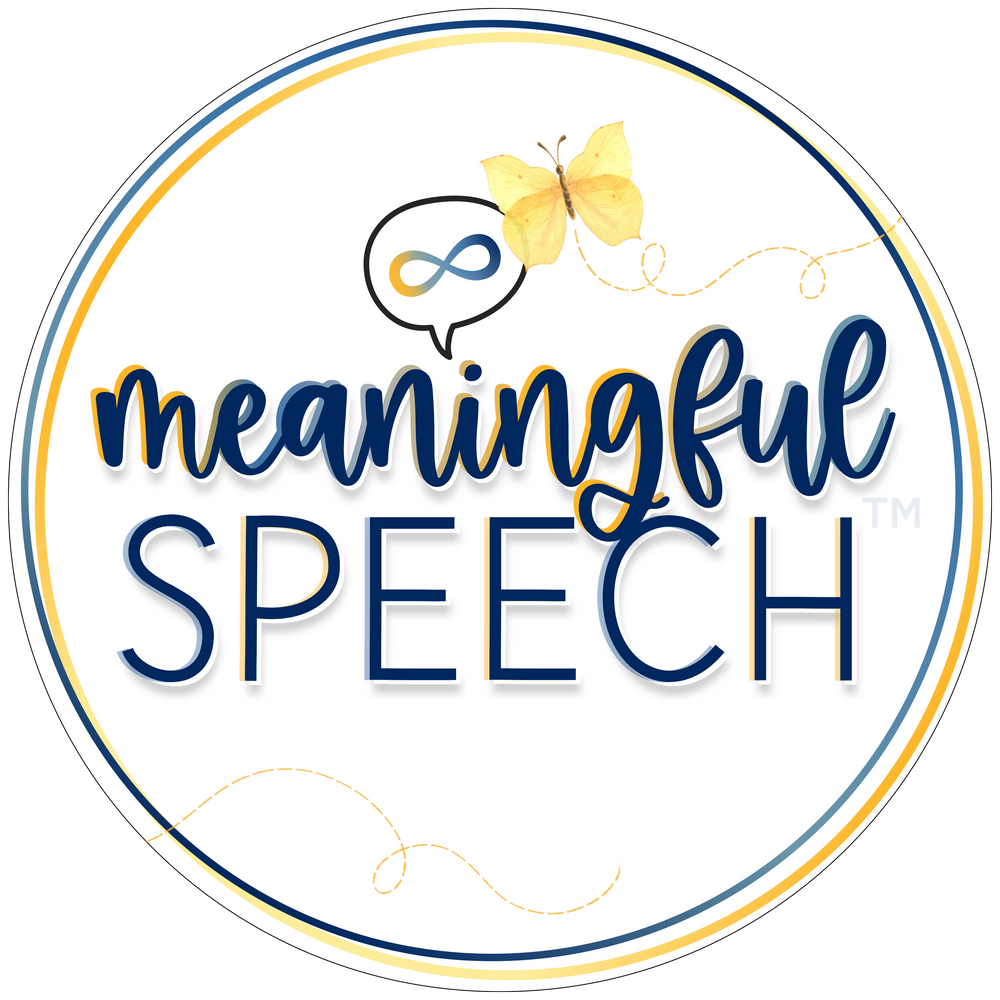Differences you'll see when working with an NLA-Trained SLP
Aug 30, 2023
If your child was previously getting speech therapy that was more "traditional", compliance-based and/or geared towards analytic language processors, things will look different when they start being supported by a speech-language pathologist (SLP) that is knowledgable about the Natural Language Acquisition (NLA) framework and gestalt language development. Let's talk about some of the things you might notice.
More silence/observing
Silence is GOLDEN when it comes to supporting gestalt language processors! You may notice a lot more silence than you see in other or prior therapies. Silence allows the SLP to:
- Listen and acknowledge your child's true spontaneous language.
- Observe what your child likes and gravitates towards.
- Decrease auditory input which can lead to better regulation for some children.
- Provide time for your child to process the language being modeled.
- Provide time for the child to initiate communication and share THEIR thoughts.
- Reduce prompt dependency.
The data will be language samples!
When supporting gestalt language processors, language samples are our data! So, while it might seem as through the SLP isn't taking data throughout their sessions, they are! They might be audio or video recording the session to listen to at a later time to take a language sample. If they're not, they might be quickly jotting down what your child says. THIS is their data! They will use the NLA framework to score these language samples.
Focus will be on connection, NOT compliance
Connection is foundational to supporting the language development of all children. A child needs to trust us to pick up on our language models. An NLA-Trained SLP will prioritize connecting with your child to best support them. The SLP will not come in with an adult-directed agenda or plan that must be completed. The child will not have to "work" towards toys/games/activities they are interested in as rewards. Instead, they will use child-led therapy to support your child.
More play (child-led!)
It might look like your child isn't "working" during sessions. Play is learning! There is no "work" when supporting gestalt language processors. Sessions will be child-led (with safety always in mind), meaning that the SLP will follow the child's lead and interact with what the child is interested in. They will model language naturally throughout the session which you may notice requires some "thinking on your feet" from the clinician as they cannot always anticipate what the child will interact with. Sessions will be much more intrinsically motivating to the child because they are interacting with what is important to them.
More movement!
When we move, language moves! You might notice that the child isn't required to sit quietly and "work" at a table-top during their sessions. Instead, sensory needs are supported proactively (before the child becomes dysregulated) and movement is allowed and encouraged. The child is provided with unrestricted access to sensory supports during sessions.
More acknowledgement of ALL communication
An NLA-Trained SLP will acknowledge and accept all communication as meaningful. They will not try and extinguish or ignore a child's communication. They will not prioritize one mode of communication over another.
No worksheets
There is no direct teaching of language when it comes to supporting gestalt language processors. All language supports are provided through natural language modeling during child-led activities. Therefore, you will notice that your child isn't completing worksheets during their sessions, or bringing them home as homework.
Focus is not on visuals
Focus during session will not be on visuals. Gestalt language processors do not need visuals (i.e. sentence strips, flash cards, etc.) to pick up language. They can listen to the language in their environment, process, and use gestalts that are meaningful to them! Unless the child is an AAC user, a candidate for AAC and/or they are hyperlexic! In this case we will use written and/or visual supports.
Want to learn more in-depth information about how to support gestalt language processors?
- Look for a speech-language pathologist (SLP) who "gets it" and can help you in supporting your child's language development. Check out our world-wide registry for NLA-trained SLPs who understand gestalt language processing and child-led therapy.
- Consider taking the Meaningful Speech course to learn more about how your child or client processes language, how you can help support them from echolalia to self-generated (original flexible) language, child-led therapy, and neurodiversity-affirming practices.
- Consider taking our AAC + Gestalt Language Processing course. It will teach you how to identify, evaluate and support gestalt language processors who use AAC or who you think might benefit from AAC.
- Consider purchasing our GLP Handbook for Coaching and Education. This comprehensive resource was designed by Meaningful Speech team member Katie Arnold for clinicians and parents! The GLP Handbook is filled with tools to educate about and advocate for a Gestalt Language Processor in your life (or on your caseload).
- Consider taking one of Marge Blanc’s courses on Natural Language Acquisition or purchasing her book. Both can be found on her website: www.communicationdevelopmentcenter.com.
